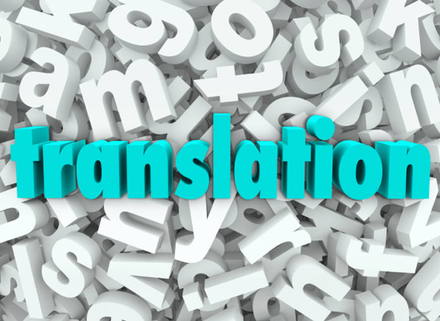 The art of translation is something we don't think about much—until something goes wrong. (Tweet it!) But history abounds with consequential mistranslations—“erroneous, intentional or simply misunderstood”—says Mark Polizzotti, author of Sympathy for the Traitor: A Translation Manifesto. (https://nyti.ms/2Ltlztr). Nikita Khrushchev’s infamous 1956 statement—“We will bury you”—ushered in one of the Cold War’s most perilous periods. But it turns out the Soviet’s actual declaration was “We will outlast you.” And the response of Kantaro Suzuki, prime minister of Japan, to an Allied ultimatum in July 1945—days before Hiroshima—was conveyed to Harry Truman as “silent contempt” (“mokusatsu”), when it was actually intended as “No comment. We need more time.” Japan was not given more time. Myriad examples go back through antiquity. But lately, the perils of potential mistranslation have taken on renewed urgency. Free-form tweets in one’s native idiom instantly reach a global audience. But the nature of tweets, with their fractured syntax and frequent idioms, can lend themselves to misinterpretation. Careful and thorough reading of translated material can literally make the difference between war and peace. If we are aiming for a global audience, we must consider the difficulties that hastily crafted communications may pose to foreigners. Likewise, we must try to ensure that the translations we read and hear are accurate. Have you ever been misled by a poor or incomplete translation? What were the consequences? To join the conversation, click "comments" above. If you would like to read more about creating a habit around masterful communication, check out our book: Be Quiet, Be Heard: The Paradox of Persuasion
2 Comments
Grisha Alpernas
9/4/2018 09:27:25 am
This is definitely an important topic. As a person that is fluent in 4 languages, I have the very direct experience of funny and not so funny situations with bad translation.
Reply
susan
9/4/2018 12:28:47 pm
Thanks for this Grisha. How incredible that you are fluent in 4 languages! In an earlier blog, we shared research that suggests that multi-lingual people are also more empathic. So kudos to you on multiple fronts!
Reply
Your comment will be posted after it is approved.
Leave a Reply. |
Archives
July 2024
Categories
All
|
|
Glaser & Associates, Inc.
Executive Offices 1740 Craigmont Avenue, Eugene, OR 97405 541-343-7575 | 800-980-0321 [email protected] |
© 2019 Glaser & Associates. All Rights Reserved.


 RSS Feed
RSS Feed